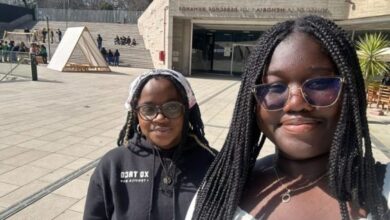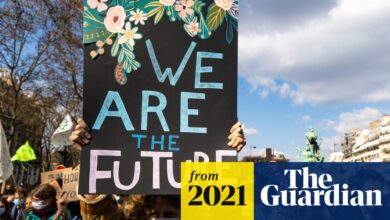Olympic icon John Carlos speaks on social justice, civil rights – News and Events

At the 1968 Olympics in Mexico, U.S. sprinter John Carlos climbed onto the podium and took a stance that changed his life—and the world—forever.
After winning bronze in the 200m sprint, Carlos and teammate Tommie Smith, who took gold, raised their fists in a powerful protest for civil rights.
The moment, captured in the iconic photo above, remains one of the most overt political statements of the Olympic Games, and reverberated worldwide as a symbol of resistance, courage and change.
Fifty-seven years later, on February 4, Carlos, now 79, will speak at TMU in honour of Black History Month. The event is free for students, faculty and staff.
View details on TMU event with Dr. John Carlos.
“John Carlos has set an exemplary example for young people who are passionate about fighting injustice and changing the world for the better,” said Jen McMillen, vice-provost-students.
“We are honoured to host him at TMU so that students and other members of the community can learn from his legacy, and be inspired by his courage and achievements,” she said.
Mark Stoddart, a Toronto-based entrepreneur, activist and community advocate who partnered with TMU Athletics and Recreation to help facilitate the event, said he had a poster of Carlos’ protest image on his bedroom wall when he was growing up.
“His iconic silent gesture on the podium at the 1968 Olympics has profoundly impacted my life… Listening to him speak will leave everyone inspired and motivated to make a difference,” Stoddart said.
‘For all of humanity’
Carlos’ decision to use the Olympic platform in a moment of protest was not taken lightly. He and Smith had been planning it for months with the Olympic Project for Human Rights (OPHR).
“My father fought in the first world war, my brother was in the air force, and my other brother fought in Vietnam. We did so in the name of freedom, for equality— but look what was happening in our own country,” he said, referring to an era in the U.S. plagued by issues of racial segregation, police brutality, economic inequality, gender discrimination, and the Vietnam War, in which the U.S. military draft disproportionately affected poor and minority communities.
While some advocated for Carlos and Smith to boycott the Games altogether, the pair believed their protest on the podium would have greater impact.
Black gloves, bare feet
At the medal ceremony, they wore black gloves to symbolize Black unity, bare feet to signify poverty, beads to evoke the chains and ropes used in racial lynchings and to symbolize the oppressed, and bowed their heads during the U.S. national anthem.
After the ceremony, western media reported their raised fists as having been a Black Power salute.
“But it was for injustice everywhere. It was for all of humanity,” Carlos said.
Since then, Carlos has dedicated his life to civil rights activism, humanitarian efforts and education, including having worked as a school counsellor and coach. (He also played briefly in the Canadian Football League, for the Toronto Argonauts and the Montreal Alouettes.)
His accolades include induction into the USA Track & Field Hall of Fame, the ESPY Arthur Ashe Award for Courage and a Congressional Gold Medal, among many.
Source link




